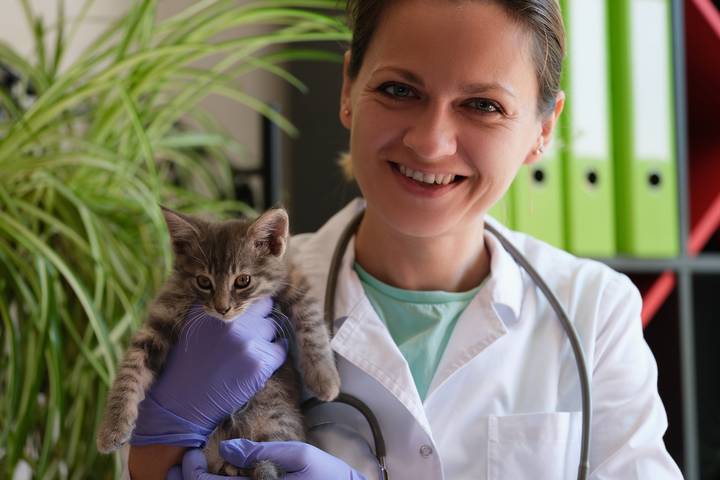
We share this planet with many animal species, and throughout history, we have interacted with them. While some were feared and others became food, there were many that we domesticated to become the loving pets that live with us today.
Animals in the wild get sick and die, and we don’t have a front seat to see it occur. It is part of nature and balances the ecosystem and animal population, but for our domesticated, furry friends, we care for them just like ourselves, and when they get sick, we have doctors to help out.
Have you ever taken an animal to see a veterinarian? These professionals are trained to treat all kinds of illnesses in animals, but with various species, they need to specialize to give the best care.
These are the types of vets there are.
Type #1: Companion Animal Vets
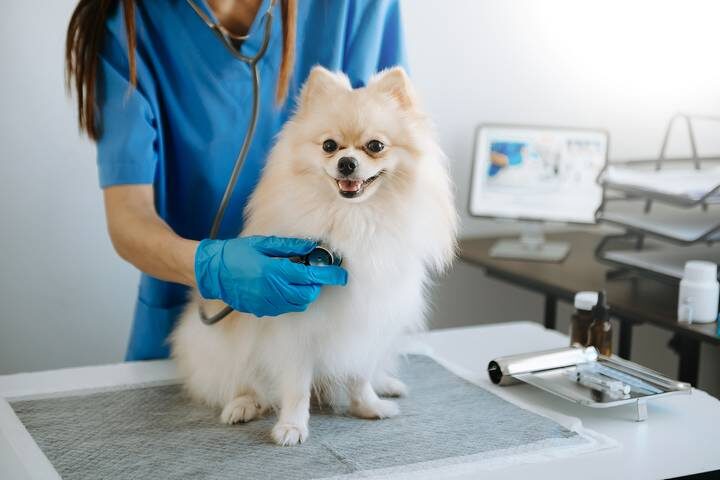
These are the veterinarians we are most familiar with and the doctors in the largest group. They care for the well-being of our household pets like:
- Dogs
- Cats
- Rabbits
- Gerbils
- Reptiles
These and other household pets can be brought into a clinic for health concerns, and your vet will diagnose disease, perform surgeries, give medication, administer vaccines, set broken bones and euthanize terminally ill pets. Often, they are on call 24 hours a day and will take great care of your companion animal.
Type #2: Urgent Care Vets
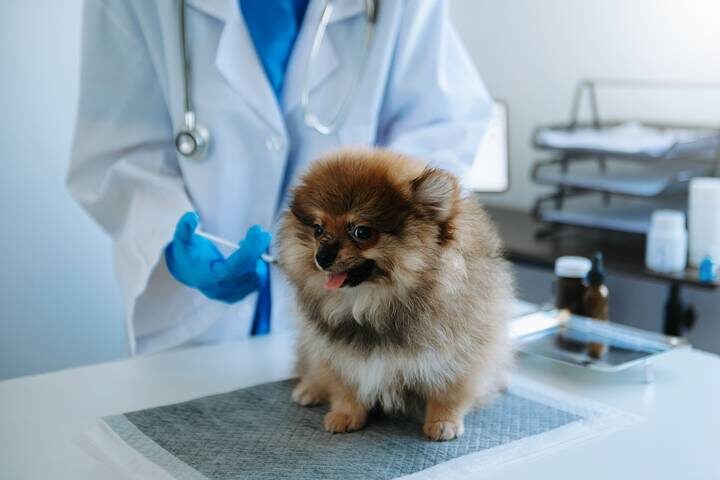
Animal urgent care vets treat animals in distress. Unfortunately, urgent care is always needed. There are three levels of care for an animal:
- Primary Care
- Urgent care
- Critical care
Urgent care means you bring your pet in because of a pressing need that must be addressed like:
- Wounds
- Injuries
- Blood in stool
- Allergic reactions
- Red, squinting or discharge with eyes
- Vomiting
- Diarrhea
With urgent care, the patient is stable, and when you bring them into the hospital, they may have to wait, depending on the severity of other animals there. If you can make an appointment with your vet, it is better to come in regularly unless their symptoms worsen. The doctor will assess your pet and determine if they can treat it there or need to go to a hospital for emergency or critical care.
Type #3: Food Animal Vets
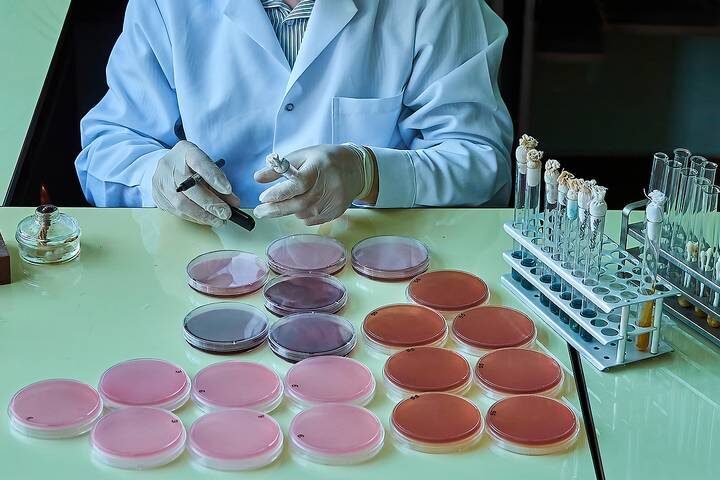
Food animals are those raised for their meat and milk, and these vets work to control and prevent disease in herds on farms, ranches and homesteads, and their work usually takes them on the road.
These professionals also work with the animals to:
- Examine them to treat for injuries and sickness
- Help with health management using regulatory and food safety requirements as well as disease identification and biosecurity
- Ensure sanitary conditions before and after all procedures
- Test and vaccinate animals
They are vital for at-home care of food animals and bolster our food supply.
Type #4: Research Vets
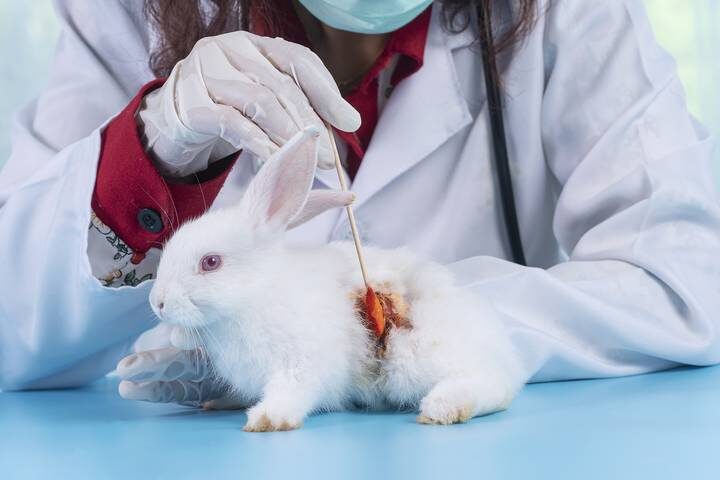
Some veterinarians don’t have regular contact with animals in a clinic but rather focus their skills and training on research. Many are employed in government organizations, universities and biomedical research companies, working on the treatment and prevention of disease.
They also research medicines, procedures and new diseases to better help care for food and companion animals. A research vet is also vital in developing and testing drugs and other biomedical products for use in the industry.
Type #5: Critic Care Vets
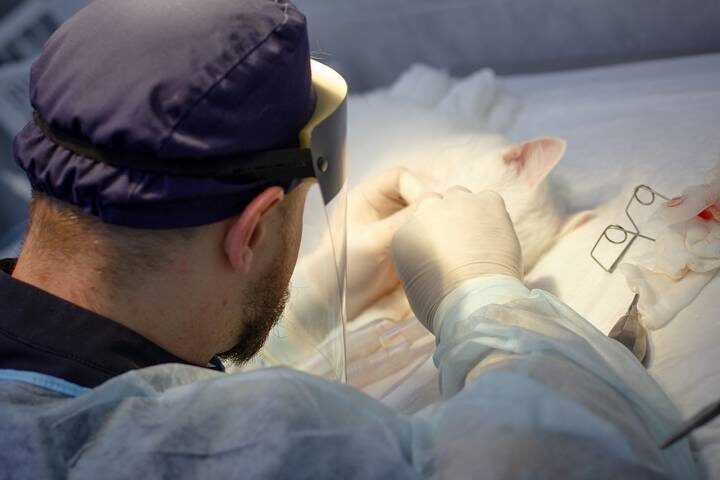
Critical care vets are on the front line of emergency service and undergo specialized training to handle emergencies with critically ill animal patients and work in hospital settings to stabilize, treat and monitor critical patients with the goal of rescue and healing.
Type #6: Other Specialized Vets
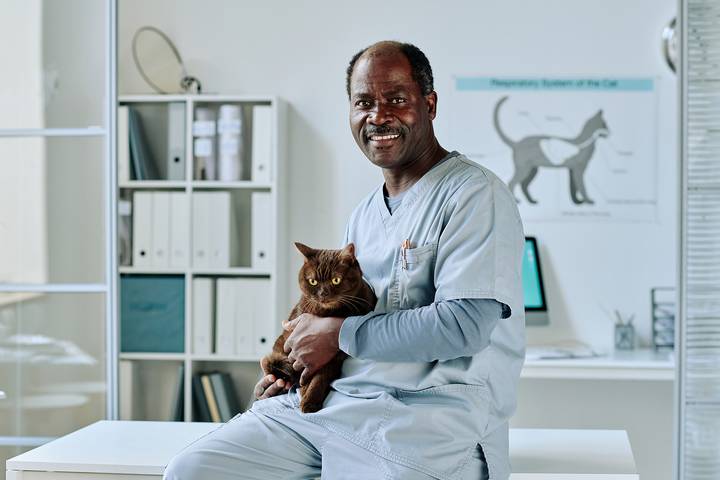
Many vets choose to specialize in a particular branch or field of animal medicine. These include:
Dentistry
These types of vets diagnose and treat teeth and oral health conditions, including root canals and teeth extraction.
Anesthesia Vets
are trained in pain relief and anesthesia. Still, you can specialize in this for surgeries where they need to monitor and mitigate risks with anesthesia and advanced pain reduction techniques.
Dermatology
Skin conditions are common with animals, and because the skin is the largest organ in most species, a vet can specialize in this. They have advanced training to address various skin conditions and understand that these often result from underlying conditions with the animal.
Other specialized fields are:
- Microbiology
- Nutrition
- Laboratory medicine
- Preventative medicine
- Theriogenology
- Internal medicine
- Pathology
- Ophthalmology
- Pharmacology
- Radiology
- Toxicology
- Zoology
- Behavior
These are the types of vets; theirs is an exciting and rewarding profession. If you are considering going into this field, know you can follow a wide range of specialties. For animal owners, these doctors will provide the best care for your livestock and companions to restore them to peak condition.









